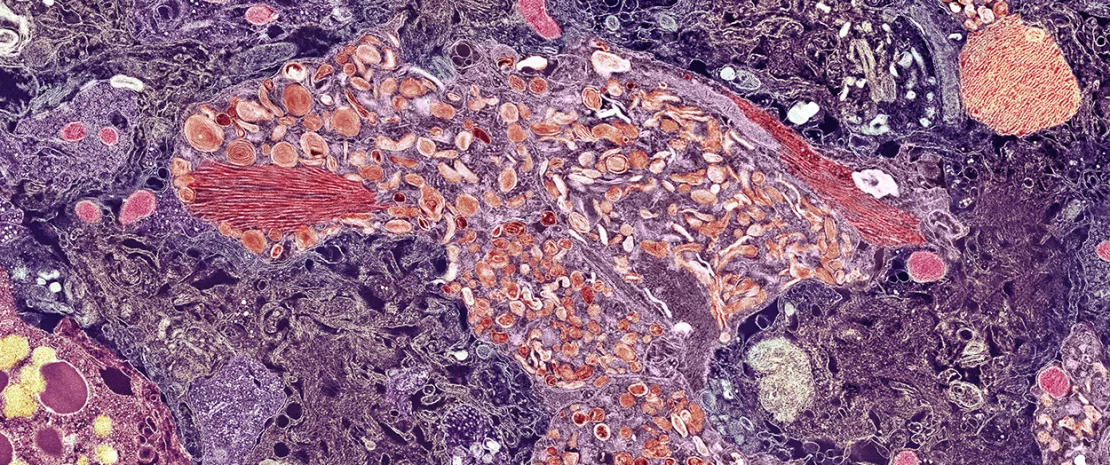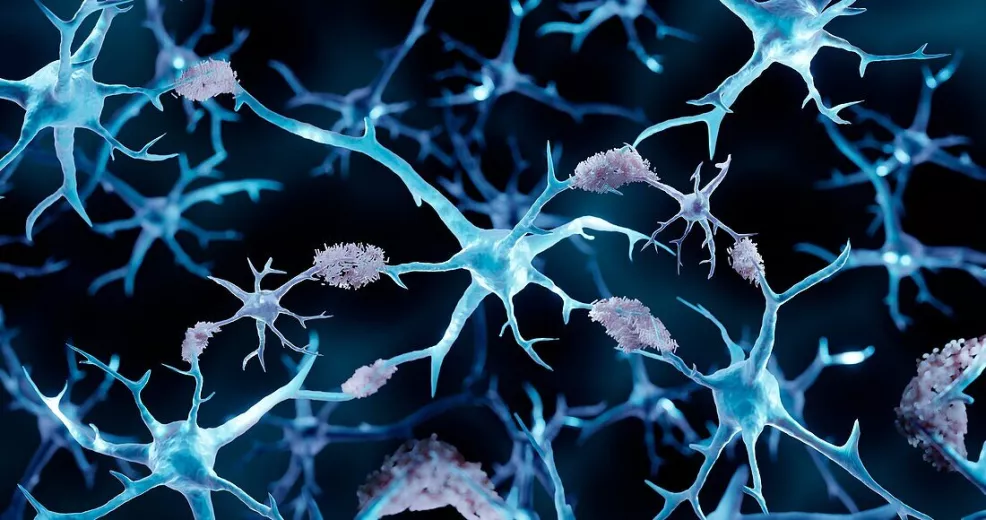Specific microbial species correlate with amyloid and tau pathology in Alzheimer’s disease
We've linked gut health to Alzheimer's, but a new study shifts the paradigm. It's not overall diversity, but specific microbial identities that matter. Some species, known as beneficial biomarkers, protect the brain, while others, even from the same genus, may accelerate cognitive decline.
Lay public section
Find here your dedicated section
Sources
This article is based on scientific information

About this article
For years, the scientific community has been gathering evidence that our gut and brain are in constant communication, a concept known as the gut-brain axis. 1, 2 We’ve seen that the composition of the gut microbiota is different in patients with Alzheimer’s disease 3, and that this dysbiosis might contribute to the neuroinflammation that fuels the disease 4, 5.
But the precise details have been blurry. We’ve been looking at the forest, but a groundbreaking new study 6 zooms in on the individual trees, and what it reveals could fundamentally change how we approach this Alzheimer devastating neurodegenerative disease.
Beyond the brain: not overall diversity, but specific microbial identity
What if the first whispers of Alzheimer’s disease weren’t cognitive, but compositional? A landmark study published in Alzheimer's Research & Therapy provides compelling evidence that the key to understanding, and perhaps one day diagnosing, the cognitive decline in the lives of patients affected by Alzheimer’s disease may lie within the specific species of bacteria residing in our gut.
Using high-resolution (sidenote: Shotgun Metagenomics This is a high-resolution sequencing method that analyzes all the genetic material from every microbe in a sample. Unlike older techniques that just identify bacterial families, it allows for precise identification down to the species level and reveals the functional genes those bacteria possess. ) on patients with (sidenote: Mild Cognitive Impairment (MCI) MCI is a clinical stage between the expected cognitive decline of normal aging and the more severe decline of dementia. Individuals with MCI have noticeable memory or thinking problems but can still perform most daily activities, representing a critical window for intervention and study. ) , a critical intermediate stage, the researchers found that there was no significant difference in the overall diversity of the gut microbiota compared to healthy controls. Instead, the crucial difference was the identity of the players. The study pinpointed 59 specific microbial species whose presence or absence was directly correlated with MCI, amyloid plaques, and (sidenote: Tau Protein Tau is a protein that normally stabilizes the internal transport system, or microtubules, within the brain's nerve cells. In Alzheimer's disease, it becomes abnormally phosphorylated and aggregates into neurofibrillary tangles inside the neurons, leading to cellular dysfunction and death. ) levels, the core pathological hallmarks of Alzheimer's disease. This tells us it’s not about the size of the microbial army, but which specific soldiers are on the front lines.
The surprising role of two Bacteroides: why species-level detail is a game-changer
Here is where the findings about gut biomarkers become truly paradigm-shifting. The study revealed that different species within the very same genus can have opposite effects on brain health. For example, the presence of the species Bacteroides eggerthii was associated with a reduced risk of MCI. Yet, another species, Bacteroides thetaiotaomicron, was linked to a higher risk.
This is a critical discovery because it demonstrates that previous studies relying on lower-resolution sequencing, which could only identify bacteria at the genus level, may have missed the most important part of the story. It’s like knowing someone is a "mammal" without knowing if it's a mouse or a lion. This species-specific activity is a fundamental insight that will force the field to adopt more precise methods.
Toward functional biomarkers: the protective role of Akkermansia
The study moves beyond mere correlation, identifying bacteria that are not just present, but are functionally tied to brain health. One of the beneficial species identified, Akkermansia muciniphila, was negatively correlated with amyloid burden. This is significant because Akkermansia is known to produce metabolites that strengthen the gut barrier and have anti-inflammatory effects. 7 This research suggests its role may be even more direct, potentially influencing the brain's energy metabolism and protecting against the buildup of toxic proteins, such as tau protein.
The identification of specific pro- and anti-inflammatory species tied directly to amyloid and tau levels opens the door for developing highly sensitive metabolic biomarkers, 8, 9, 10 potentially allowing for a diagnosis at the MCI stage, long before irreversible damage to the central nervous system occurs.
These findings further reinforce the growing recognition of the gut microbiota’s role in the context of Alzheimer’s disease. To explore this topic in more depth, read our dedicated articles on how the gut microbiota may act as a key player or even an early indicator of the disease
1. https://www.biocodexmicrobiotainstitute.com/fr/comment-notre-intestin-dialogue-en-permanence-avec-notre-cerveau
2. https://www.biocodexmicrobiotainstitute.com/fr/pro/role-du-microbiote-dans-la-communication-intestin-cerveau
3. Vogt, N.M., Kerby, R.L., Dill-McFarland, K.A. et al. Gut microbiome alterations in Alzheimer’s disease. Sci Rep 7, 13537
4. https://www.biocodexmicrobiotainstitute.com/fr/alzheimer-comment-notre-intestin-nous-fait-perdre-la-tete
5. https://www.biocodexmicrobiotainstitute.com/fr/pro/alzheimer-comment-la-dysbiose-intestinale-influencerait-la-pathologie-amyloide
6. Fan, KC., Lin, CC., Chiu, YL. et al. Compositional and functional gut microbiota alterations in mild cognitive impairment: links to Alzheimer’s disease pathology. Alz Res Therapy 17, 122 (2025).
9. https://www.santelog.com/actualites/alzheimer-parkinson-ces-biomarqueurs-caches-dans-le-microbiote
10. Liang Y, Liu C, Cheng M, et al. The link between gut microbiome and Alzheimer's disease: From the perspective of new revised criteria for diagnosis and staging of Alzheimer's disease. Alzheimer's Dement. 2024; 20: 5771–578








